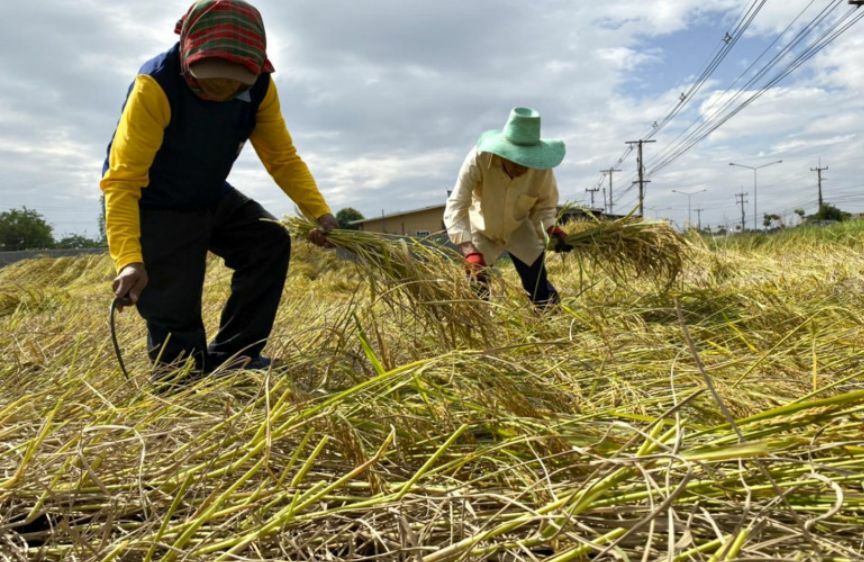Crop déjà vu: Critics dub gov’s agri-reform a rerun of past plans

The government’s current measures to reform the nation’s agricultural sector, particularly rice farming, are largely seen as reiterations of former strategies, declared industry commentators. They suggest that any budget-based support should come with certain stipulations.
Aat Pisanwanich, an international economics lecturer, after evaluating these measures, observes that the central policy appears to be a three-year debt suspension for farmers, with a cap of 300,000 baht each.
Other state strategies include the provision of 1,000 baht per rai to rice farmers, capped at 20 rai, which equates to a maximum of 20,000 baht per household. There is also the provision of loan support to agricultural cooperatives, permitting them to purchase rice at rates higher than market prices, thereby enabling profit-sharing with farmers.
In comparison with other production sectors, Aat notes that the agricultural sector has received the least support from the current administration. The assistance given only addresses surface issues like debt suspension and financial support to rice farmers, while the root issues remain unaddressed.
Aat points out several shortcomings, such as the lack of long-term solutions for agricultural products in the event of a price slump, inadequate policies for water management, no measures to cut production costs and enhance productivity per rai, and skewed export promotion efforts that are principally focused on China.
He also emphasises the need for plans to decrease greenhouse gas emissions in agricultural products, which currently remain obscure.
Agricultural reform
“The assistance measures for other agricultural products, aside from rice, still lack clarity as the Srettha Thavisin government has focused on the digital wallet scheme and tourism promotion over the farming sector.”
Aat also draws attention to the absence of initiatives to modernise agricultural product processing to create added value, such as future food and health food, and the lack of measures to encourage the bio-, circular and green economic model in farming.
Nipon Puapongsakorn, from the Thailand Development Research Institute, echoed Aat’s sentiments, stating that the current government’s agricultural support measures aren’t substantially different from those of the previous administration. He considers the financial assistance offered to farmers who agree to delay sales by storing rice in their barns as ineffective.
Visit Limlurcha, President of the Thai Future Food Trade Association, who advocates for the use of technology to elevate the agricultural sector. He suggests that the government should provide knowledge on farming practices, productivity enhancement strategies, and cost reduction measures.
Authorities should also encourage the application of modern technologies and innovations to bolster the R&D of plant varieties, increase crop yields, and raise the value of return per rai.
Visit also stresses the importance of devising a sustainable and economically viable agricultural sector through market innovations and transformative changes in crop cultivation. He highlights climate change, drought, and flooding, as challenges that impact agricultural production and food exports severely. He recommends the government implement measures to address these issues effectively, reported Bangkok Post.
Latest Thailand News
Follow The Thaiger on Google News:


























